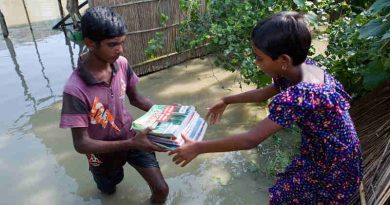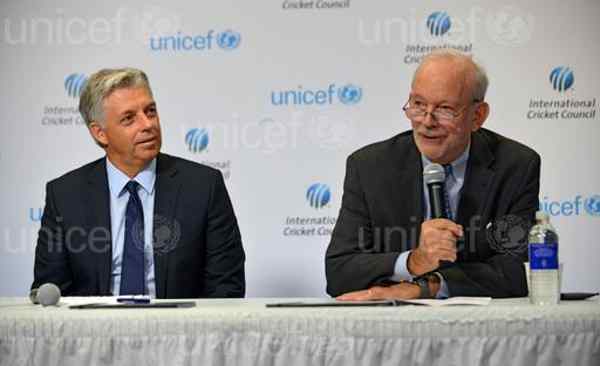Haiti Children Still Suffering after Quake
One year after the devastating Jan. 12 earthquake shook their lives, Haiti’s 4 million children continue to suffer from inequitable access to basic water, sanitation, healthcare, and education services and protection from disease, exploitation, and unsanitary conditions, UNICEF said Friday.
Today, more than 1 million people – approximately 380,000 of whom are children – still live in crowded camps. The relief and recovery efforts of Haitians and the international community have been extraordinary.
[ Also Read: Angelina Jolie, Brad Pitt Donate to Help Children ]Nonetheless, the United Nations children’s agency noted in its report “Children in Haiti: One Year After – The long road from relief to recovery” issued Friday, Jan. 7, in recognition of the anniversary, that the recovery process is just beginning.
[ Also Read: If I Were President: My Haitian Experience ]In the effort to keep the needs of children central to Haiti’s long-term recovery, the U.S. Fund for UNICEF is launching Haiti 365: Be Their Voice at www.UNICEFHaiti365.org as a platform to enable the U.S. public to renew their commitment to Haiti’s children and advocate on their behalf.
There is a profound opportunity right now to help Haiti develop its greatest asset – a generation of children, suggests UNICEF.
[ Also Read: Red Cross Helping Cholera-Infected People in Haiti ]“Children in particular suffered and continue to suffer enormously because of successive emergencies experienced in 2010, and they have yet to fully enjoy their right to survival, health, education, and protection,” said Ms. Francoise Gruloos-Ackermans, UNICEF Haiti Representative.
Responding to the challenges of successive humanitarian emergencies requires commitment and investment in sustainable solutions for Haiti’s people. Water, sanitation and hygiene were on the decline prior to Jan. 12, with only 19 percent of people having access to basic sanitation facilities in 2006, down from 29 percent in 1990.
[ Also Read: Honeywell Opening School in Quake-hit Haiti ]In response, UNICEF provided more than 11,300 latrines serving over 800,000 people. While challenges remain in both water and sanitation, UNICEF is working to help implement sustainable solutions that include investing in water systems and focusing on community-led sanitation.
The earthquake highlighted the deeply rooted structural problems faced by Haiti’s children, including chronic malnutrition, which affects one in three children under five years of age.
[ Also Read: Storybook to Impart Tech Education to Children ]UNICEF worked with partners to deliver nutritional supplements to address particular needs of infants and their mothers.
By mid-year, a network of 107 “baby friendly tents” was fully operational, providing nutritional advice and counseling for mothers and children, including a safe space to breastfeed.
To date, more than 102,000 children and 48,900 mothers have been reached through these services with nutrition counseling and information, UNICEF says.
Photo courtesy: UNICEF





